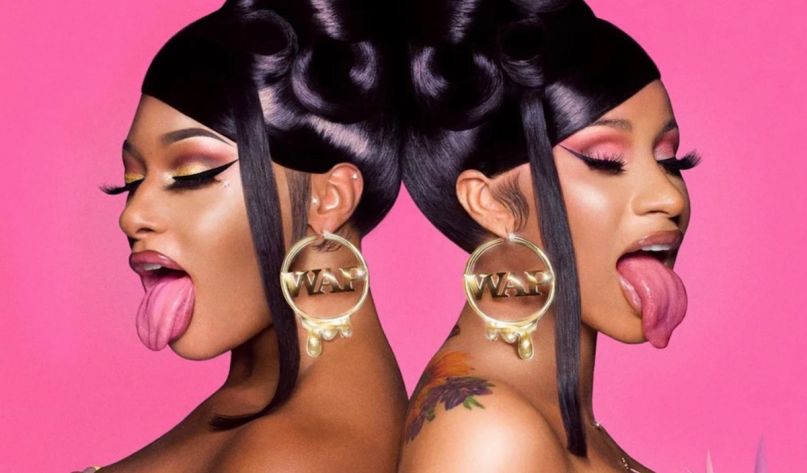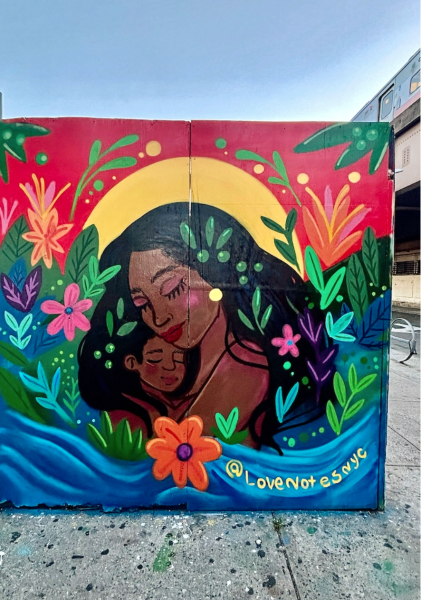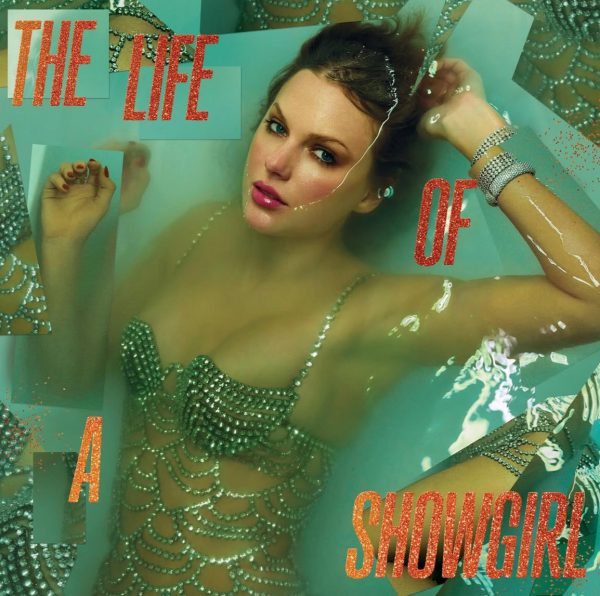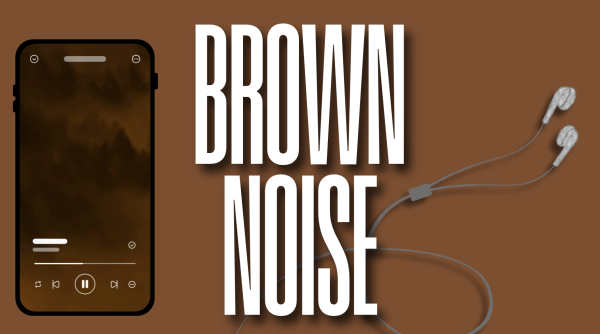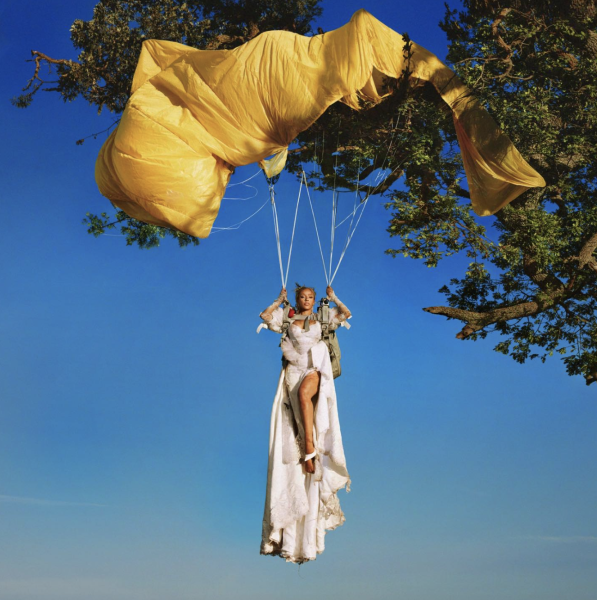WAP Triggers Buckets of Controversy
Music and sex. It is a combination as old as music itself, yet audiences never seem to grow tired of the endless stream of songs dedicated to what happens behind closed bedroom doors. And no matter how often the public is bombarded with tracks bursting with sexual imagery and innuendo, these “sex anthems” seldom fail to raise eyebrows and rustle feathers.
Even so, the public reaction to “WAP,” a collaboration between female rap powerhouses Cardi B and Megan Thee Stallion that dropped in August of 2020, was explosive. The song, rife with graphic sexual details and cheeky jokes, drew both glowing praise and swift condemnation. Its mixed reception is the latest example of how female artists are routinely held to different standards of decency than their male contemporaries in the music industry, especially when it comes to celebrating sex.
The song itself pulls no punches. Cardi and Megan take turns boasting about their sexual prowess, especially when it comes to the high levels of lubrication in their nether regions. Lyrics like “get a bucket and a mop” speak for themselves.
Raunchy and lewd songs in the hip hop genre are common, but perhaps the explicit nature in which these two women openly sexualize their bodies is what caught the attention of conservatives on social media last month.
“Cardi B and Megan Thee Stallion are what happens when children are raised without God and without a strong father figure,” James P. Bradley, a Republican congressional candidate running in California’s 33rd district, tweeted on August 7. “Their new ‘song’ the #WAP (which I heard accidentally) made me want to pour holy water in my ears and I feel sorry for future girls if this is their role model!”
DeAnna Lorraine, another Republican who recently lost a congressional race against incumbent Speaker of the House Nancy Pelosi, criticized “WAP” as well, tweeting that the song “set the entire female gender back by one hundred years.”
But most notable was conservative pundit Ben Shapiro’s criticism of the song. In an episode of his daily podcast “The Ben Shapiro Show,” the commentator mocked its racy music video and provocative lyrics in a dramatic reading of parts of the song, his flat and mechanical delivery comically juxtaposed with the song’s over-the-top sexual imagery.
He also sneered at the idea that the track could be considered a feminist anthem.
“This is what the feminist movement was all about,” Shapiro joked. “It’s not really about women being treated as independent, fully-rounded human beings. It’s about ‘wet-a– p-word.’ And if you say anything different you’re a misogynist.”
His line of thinking is clear: How can women expect to be treated with respect if they insist on making such dirty songs? But his ideal feminism as women who are “independent, fully-rounded human beings” chooses to ignore the obvious: Most human beings have sex. Why should women’s empowerment and open sexuality be mutually exclusive?
Cardi B has expressed in the past that she wants women to listen to her music and feel liberated.
“My music is always going to make a woman feel like a bad b—-,” she said in an interview with Elle. “When you make a woman feel like she’s the baddest b—- in the room, to me, that’s female empowerment.”
Reilly Dunne, FCRH ‘22 the general coordinator for the Fordham Women’s Empowerment Club, said “WAP” has merit as a feminist anthem. “There is a huge stigma around female sexuality that needs to be broken — my own female friends are uncomfortable talking about their own sexual pleasure!” she said. “I think we need more songs like ‘WAP’ by women that are unabashedly sexual in order to help break the stigma. Let women be sexual beings too!”
There has also been praise for the way “WAP” tackles the taboo topic of female genitalia and reproductive health.
Dr. Jen Gunter, an obstetrician and gynecologist and contributor to The New York Times, expressed delight at the song’s promotion of healthy levels of vaginal lubrication.
“As a gynecologist, I’m used to dispelling all kinds of vaginal misinformation in the office and online, but the one myth that is the hardest to undo — and that I encounter regularly with patients — is the idea that vaginal lubrication is ‘problematic,’” she wrote. “I don’t think ‘WAP’ is going to smash the patriarchy, replace sex education or end predatory feminine hygiene practices, but talking about it is an empowering next step.”
Shapiro opened himself to an onslaught of online humiliation after he revealed his lack of understanding of female reproductive health in his show and on Twitter. “My only real concern is that the women involved [Cardi and Megan] — who apparently require a ‘bucket and a mop’ — get the medical care they require,” he tweeted. He also passed along several possible diagnoses apparently made by his wife, who is a doctor.
Other Twitter users laughed at the implications of his comments, particularly the idea that his wife might be sexually unsatisfied in their marriage. Moments like this serve as a reminder that the societal stigma around female sexuality prevents both men and women from receiving a complete sexual education.
The mixed reception of “WAP” also serves as yet another example of Black female artists receiving more criticism for sexualizing themselves than Black male artists typically do, as well as promoting the idea that Black women do not deserve respect if they choose to make explicit music.
As Brianna Holt wrote in a piece for Complex, “Black women shaking their butts and describing their sex life in music is not what sets Black women back; it’s the people who justify harm toward us because of these actions.”
“WAP” wasn’t the first song to spark this kind of debate, and it likely won’t be the last. But it does mark another milestone in the slow progress women in music are making in breaking free of societal taboos and creating a more open and safe space for appreciation of female sexuality.
Dunne said she liked the song and enjoyed the sexually explicit and silly lyrics, but she also expressed the hope that more progress will still be made.
“I think there is more to feminism today than just cis heterosexual women’s empowerment in the bedroom,” she said. “There’s still huge strides that need to be taken for acceptance and education about lesbian, bisexual and trans women/women-identifying people’s sexuality.”
While “WAP” falls short in that sense, it can at least provide an outlet for women to embrace themselves as sexual beings and enjoy the message of two powerful women who are not ashamed of their desires.

Abbey Delk is a junior from Wheeling, West Virginia, double majoring in English and journalism and minoring in film & television. Her career at the...





































































































































































































